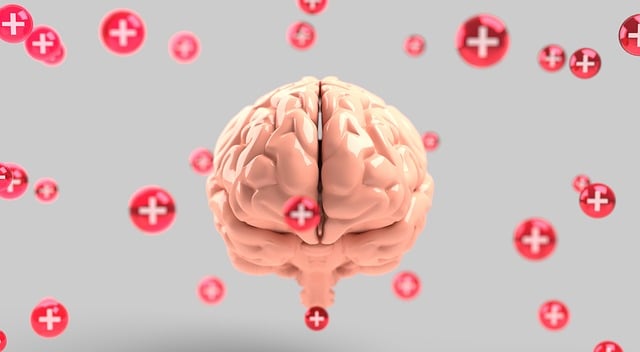Substance abuse is a complex issue driven by psychological, social, and environmental factors. Therapy for Exposure and Response Prevention (ERP) is an effective, evidence-based approach that targets underlying trauma and maladaptive behaviors, reducing reliance on substances as coping mechanisms. This method combines gradual exposure to triggers with teaching healthier coping strategies. By promoting self-care routines, stress management techniques, and supportive social networks, ERP boosts resilience. Additionally, advocating for comprehensive mental health policies ensures accessible resources for those battling substance abuse, emphasizing the importance of holistic recovery and long-term mental health stability.
Substance abuse poses significant risks to individuals and communities. Understanding the complexities of substance use disorders is crucial for effective risk reduction. This article explores comprehensive strategies for mitigating these risks, focusing on evidence-based approaches like Therapy for Exposure and Response Prevention (ERP). We delve into the importance of identifying triggers, fostering supportive networks, and implementing relapse prevention plans for long-term management. By integrating these tactics, individuals can overcome challenges associated with substance abuse and lead healthier lives.
- Understanding Substance Abuse and Its Risks
- The Role of Therapy for Exposure and Response Prevention (ERP) in Risk Reduction
- Identifying Triggers and Developing Coping Mechanisms
- Building a Supportive Network and Environment
- Relapse Prevention Planning and Long-Term Management
Understanding Substance Abuse and Its Risks

Substance abuse is a complex issue rooted in various factors, including psychological, social, and environmental influences. It involves excessive or uncontrolled use of substances like drugs and alcohol, leading to significant impairments in an individual’s daily functioning and overall well-being. Understanding these risks is paramount in developing effective strategies for prevention and treatment. Substance abuse can have severe consequences, impacting not only the abuser but also their loved ones and society at large.
One proven therapeutic approach, Therapy for Exposure and Response Prevention (ERP), focuses on addressing underlying trauma and maladaptive behaviors. By helping individuals confront and manage traumatic memories and triggers, ERP aims to reduce the compulsion to engage in substance abuse as a coping mechanism. Additionally, promoting Self-Care Routine Development for Better Mental Health is vital. This involves teaching individuals healthy coping strategies, stress management techniques, and fostering a supportive social network—all key factors in mitigating risks and enhancing overall resilience. Moreover, advocating for comprehensive Mental Health Policy Analysis and Advocacy ensures that resources and support systems are accessible to those struggling with substance abuse.
The Role of Therapy for Exposure and Response Prevention (ERP) in Risk Reduction

Therapy for Exposure and Response Prevention (ERP) plays a pivotal role in reducing risks associated with substance abuse. This evidence-based approach targets the root causes of compulsive behaviors by helping individuals confront and manage triggers. Through ERP, patients gradually expose themselves to situations that typically evoke drug cravings or anxiety while learning healthier coping strategies. By preventing the typical response—such as reaching for substances—ERP empowers clients to develop resilience and reduce the urge to engage in harmful behaviors.
Incorporating compassion cultivation practices within ERP can further enhance mental wellness and health awareness. These mindfulness-based techniques foster a nonjudgmental attitude towards oneself and others, reducing self-criticism and promoting understanding. By cultivating compassion, individuals can better regulate their emotions and respond to triggers with empathy, which is essential for sustained recovery and improved mental health.
Identifying Triggers and Developing Coping Mechanisms

Identifying triggers is a crucial step in managing substance abuse. These triggers can be people, places, things, or emotions that incite cravings and lead to relapsing. By understanding what sets off these urges, individuals can develop coping mechanisms tailored to their unique needs. Therapy for Exposure and Response Prevention (ERP) is an evidence-based approach that helps individuals face triggers without resorting to substance use. This therapy involves gradually exposing oneself to the trigger and learning new ways to respond, ultimately reducing the power of the trigger over time.
Mental health awareness plays a significant role in this process, as many triggers are linked to underlying emotional or psychological distress. Encouraging self-care practices and providing Healthcare Provider Cultural Competency Training can empower individuals to manage their mental well-being effectively. Through these strategies, people can enhance their ability to cope with challenges, reducing the likelihood of turning to substances for relief.
Building a Supportive Network and Environment

Building a supportive network and environment is a crucial component of any risk reduction strategy for substance abuse recovery. This includes fostering strong social connections with family, friends, or support groups that can provide encouragement, accountability, and guidance. Mental health professionals play a vital role in helping individuals navigate this process by facilitating peer-to-peer support systems and encouraging the adoption of self-care practices such as mindfulness, meditation, and positive thinking. These strategies not only enhance emotional well-being but also equip individuals with tools to manage stress and avoid triggers that might lead to substance abuse relapse.
Creating a safe and supportive environment at home and in the community is equally important. This involves identifying and addressing potential risks through comprehensive risk assessments for mental health professionals, which can include evaluating living conditions, access to substances, and personal safety concerns. By implementing evidence-based practices like Therapy for Exposure and Response Prevention (ERP), professionals can help individuals confront and manage anxiety or trauma triggers while promoting healthier coping mechanisms. This holistic approach ensures that recovery is not just about abstinence but also about building resilience and fostering an environment conducive to long-term mental health stability.
Relapse Prevention Planning and Long-Term Management

Relapse prevention planning is a crucial component of long-term management for substance abuse recovery. This strategy involves creating a personalized plan to anticipate and manage potential triggers, with a focus on changing behaviors and thinking patterns. By identifying high-risk situations and developing effective coping skills, individuals can gain control over their actions and reduce the likelihood of relapse. Therapy for Exposure and Response Prevention (ERP) is a powerful tool in this process, helping clients face fears and develop healthier responses.
The long-term management phase emphasizes continuous support and self-care practices to maintain sobriety. This includes regular therapy sessions, participation in community outreach programs, and ongoing coping skills development. Enhancing self-esteem and building a strong support network are integral parts of this journey. Through these comprehensive strategies, individuals can foster resilience, navigate challenges, and sustain their recovery over time.
Substance abuse poses significant risks, but with comprehensive strategies, individuals can effectively reduce these dangers. By combining evidence-based therapies like Therapy for Exposure and Response Prevention (ERP) with identifying triggers and developing robust coping mechanisms, building a supportive network, and implementing relapse prevention plans, those struggling can achieve long-term recovery and enhance their overall well-being. These strategies offer hope and a roadmap to navigating the path to a healthier, substance-free life.














